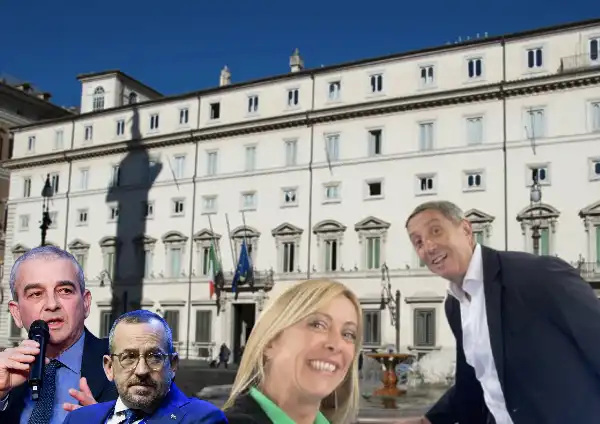
DAGOREPORT – FREGATO UNA VOLTA DAL CERCHIO MAGICO DI “PA-FAZZO CHIGI”, ORA CHIOCCI E’ PRONTO PER…

1- CONFALONIERI CONTRO IL «FINANCIAL TIMES»: «CI ATTACCATE PER FAVORIRE SKY» - LETTERA DEL PRESIDENTE MEDIASET AL QUOTIDIANO FINANZIARIO: «UN'ARROGANZA CHE SFIORA IL RAZZISMO»
Antonella De Gregorio per il "Corriere della Sera"
Nuove scintille tra Mediaset e Sky. Impacchettate in una pesante replica a firma del presidente Mediaset, Fedele Confalonieri, ospitata sul Financial Times di oggi, tra le lettere al giornale. Un colonnino in risposta a un pezzo al vetriolo del giornalista finanziario Tony Barber, pubblicato il 25 maggio scorso sul quotidiano della City. Ad accendere la miccia, un'impietosa analisi che illustra i guai finanziari di Mediaset. Le cui azioni, spiega Tony Barber, sono crollate del 60 per cento, nell'ultimo anno, toccando il livello più basso dal debutto in Borsa, nel 1996, a quota 1,31 euro.
L'articolo ricostruisce, in una potente sintesi, ascesa, fortune e declino del gruppo. Non un mero problema ciclico, imputabile alla crisi economica e alla contrazione della raccolta pubblicitaria in Italia e Spagna, i due principali mercati del gruppo, dice Barber. Che sostiene invece che il management di Segrate «sta lottando su tre fronti contemporaneamente: avanzamento tecnologico, cambiamento nei gusti culturali del Paese ed evoluzione delle regole nel Paese».
LA TV GENERALISTA
A scatenare le ire del gruppo italiano sembra essere soprattutto il pesante giudizio sulla programmazione tv: «Povera di idee, se non sciocca», la bolla Barber. Basata su «showgirl poco vestite e notiziari politicamente orientati». «Tony Barber insulta l'intera televisione generalista italiana», obietta Confalonieri. Che ne sostiene invece «ricchezza e una completezza di offerta, superiore a quella media dei broadcaster mondiali». «Non c'è praticamente successo televisivo offerto nel mondo che non arrivi ai telespettatori della tv generalista gratuita, grazie al lavoro di migliaia di dipendenti e professionisti italiani del settore», scrive il manager.
LE REGOLE
Nessuna replica, invece, sul fronte delle regole. Nonostante Barber faccia riferimento al «beauty contest», promosso dallo stesso Berlusconi quando era premier, «per favorire Mediaset e Rai nell'assegnazione delle frequenze» e poi cancellato con un colpo di spugna da Mario Monti. O ricordi l'amicizia dell'ex premier con esponenti politici (Bettino Craxi, in primis), che avrebbero favorito l'azienda del biscione nei primi dieci anni di vita. O, ancora, sfiori, dandone per scontati gli esiti sul profitto aziendale, il tema del conflitto d'interessi.
Non manca l'accenno alla Corte di giustizia europea che aveva respinto nel luglio scorso il ricorso presentato da Mediaset, confermando che i contributi italiani per l'acquisto dei decoder digitali terrestri concessi nel 2004 e 2005 (per 220 milioni di euro complessivi) costituivano un aiuto di Stato incompatibile con il mercato comune.
RAZZISMO
«Non c'entra la politica, l'economia o la cultura - taglia corto Confalonieri -. C'entra un'arroganza che sfiora il razzismo». Cita Kipling e la poesia «Il fardello dell'uomo bianco», il presidente Mediaset, per parlare di un sentimento che in Kipling a fine 1800 era evocato dall'India, «mentre mr Barber invoca nel 2012 la civilizzazione dell'Italia». E qui l'attacco alla tv di Rupert Murdoch, che «porta sulle spalle il fardello della nostra civilizzazione». Non a caso citata dal giornalista, dice Confalonieri, come vero esempio di «innovazione tecnologica». Un attacco a Rai e Mediaset, insomma, per favorire l'industria del magnate australiano. Dal quale Confalonieri cerca di mettersi al riparo con un'invocazione di stampo «british»: «God save the screen».
2- LA LETTERA DI FEDELE CONFALONIERI AL "FINANCIAL TIMES"
http://www.ft.com/intl/cms/s/0/6e7ac7ce-ab38-11e1-b675-00144feabdc0.html#axzz1wvqra9hw
ITALIAN FREE-TO-AIR TV: WELL-BALANCED DIET
From Mr Fedele Confalonieri.
Sir, It is an insult to the entire sphere of Italy's free-to-air television for Tony Barber ("Competitive challenges make picture bleak for Mediaset", Inside Business, May 25) to label Mediaset and Rai's offerings as "unimaginative, not to say imbecilic". Both public and private free-to-air television in Italy have a rich and well-rounded output, superior to that of the median of worldwide broadcasters.
All you need to do is watch it to understand. Besides a considerable, not to say massive, domestic production - from made-for-television movies, miniseries and documentaries to concerts, music appreciation and talent competitions, general information, health, morning and evening news shows - we acquire and transmit all of the leading international entertainment formats, all prominent sporting events as well as all the major Anglo-American films and TV series.
It is safe to say there is practically no successful television offering around the world that hasn't been brought to the Italian public through free-to-air television, all thanks to the hard work of thousands of employees and committed professionals dedicated to this industry.
To talk of a "diet of skimpily clad showgirls and politically contaminated news bulletins" is a sweeping generalisation, which it is not fair to make about the entire programming of another member of the European Union.
In this case, politics, economy and culture aren't the issue. Rather arrogance, bordering on racism, as in Rudyard Kipling's The White Man's Burden. But Mr Kipling wrote in 1899 about India, while Mr Barber invokes civilisation in 2012 in Italy.
And he has a clear idea of who carries the modern-day burden of "civilising" us: Rupert Murdoch's TV. He wrote it in the following sentence: "Technological change is symbolised by Sky Italia". God save the screen.
Fedele Confalonieri, Chairman, Mediaset, Milan, Italy
3- L'ARTICOLO CHE HA FATTO INCAZZARE FIDEL
PICTURE LOOKS BLEAK FOR ITALY'S MEDIASET
Tony Barber per il "Financial Times" del 25 maggio 2012
http://www.ft.com/intl/cms/s/0/fcd1a0de-a4d4-11e1-9a94-00144feabdc0.html
Nero, the ancient Roman emperor, realised his number was up when he dreamt of being suffocated by a swarm of flying ants.
For Silvio Berlusconi, the billionaire Italian politician, and his family-controlled Mediaset company, the omens are likewise tilted to the downside.
From the 1980s, Mr Berlusconi ruled the roost in Italy's commercial television industry. The market leadership of his Mediaset channels and of his Publitalia advertising agency combined with his political connections to create the most formidable concentration of power and profit seen in modern European business.
Mediaset's frothy mix of quiz shows, football matches, US movies and Latin American soap operas was - in a land that jumped from semi-literacy to the TV set in one generation - an unbeatable formula.
But Mediaset's profit stream is trickling to a halt. It is dawning on investors that the company is no longer king of all it surveys. Having lost 60 per cent over the past year, Mediaset's share price sank this month to €1.31, its lowest since a 1996 stock market debut. Cost-cutting and reduced dividends are the order of the day.
This is no mere cyclical problem sparked by economic recession and an advertising slump in Italy and Spain, Mediaset's two markets. Management is struggling to keep abreast of three concurrent developments in its business environment: technological progress, shifting cultural tastes and a transformation of Italy's regulatory climate.
Technological change is symbolised by Sky Italia, the pay-TV satellite broadcaster that is part of Rupert Murdoch's News Corp. Satellite TV was a minor force in Italy at the time of Sky Italia's launch in 2003. It seemed a remote prospect that this brash intruder would blast open the duopoly Mediaset shared with Rai, Italy's public sector broadcaster, over TV audiences and revenues.
But Sky Italia defied the odds. By 2009 it had 4.7m viewers per day in a country of 60m people and in February reported a small operating profit. It is more than a match for Mediaset's lossmaking pay-TV business.
Today's challenge for Mediaset stems from Italy's switch to digital broadcasting and the proliferation of niche TV channels. Marco Paolini, Mediaset's strategic marketing director, predicts that Apple, Facebook and Google will present his company over the next three years with its most serious competition.
Coupled with Sky Italia's satellite platform, the new digital terrestrial channels are propelling the emergence of TV programmes that depart from the unimaginative, not to say imbecilic, offerings of Mediaset and Rai.
Italians were once fed a diet of skimpily clad showgirls and politically contaminated news bulletins because that was what the duopoly served them night after night. Increasingly, viewers now have a choice and are exercising it.
A more ominous trend for Mediaset is the turning of the tide in Italy's regulatory environment. Parliament voted last month to auction new digital TV frequencies rather than give them away in a government-run "beauty contest".
Mr Berlusconi was the brains behind the "beauty contest" idea, a scheme sure to have favoured Mediaset and Rai. But his resignation in November amid the eurozone debt crisis changed everything. His replacement was Mario Monti, who once enforced EU competition rules. What Mr Monti does not know about unfair advantages in business can be written on the back of a Mediaset pay-TV card.
For a quarter of a century, Mediaset benefited from Mr Berlusconi's power to shape Italy's regulatory framework. Few would deny his business acumen. But the first decade of Mediaset's supremacy owed much to his friends in high places such as Bettino Craxi, the late prime minister who fled to Tunisia in 1994 shortly before being convicted of corruption.
In that year Mr Berlusconi became premier for the first time, holding the job for a total of nine years between 1994 and 2011. During this era he used Mediaset as a platform to advance his political career and parliament as a platform to advance his business interests. As he once airily observed: "If I, taking care of everyone's interest, also take care of my own, you can't talk about a conflict of interest."
But even before his resignation, there were warning signs for Mediaset. The European Court of Justice ruled last July that the subsidies Mr Berlusconi's government had granted consumers to buy digital terrestrial TV decoders constituted illegal state aid on behalf of Mediaset.
One day Italy's economy will pick up, and so will Mediaset's ad revenues. But the days when Mediaset flourished because its owner ran the government are gone - and few people apart from its shareholders will miss them.
 FEDELE CONFALONIERI
FEDELE CONFALONIERI  FEDELE CONFALONIERI
FEDELE CONFALONIERI  Mauro Crippa Confalonieri Mario Giordano Piersilvio Berlusconi Giuliano Adreani
Mauro Crippa Confalonieri Mario Giordano Piersilvio Berlusconi Giuliano Adreani  Fedele-Confalonieri-Berlusconi
Fedele-Confalonieri-Berlusconi mediaset
mediaset mediaset premium
mediaset premium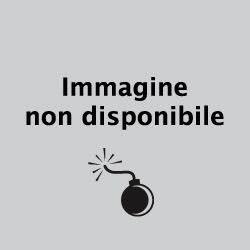 Mediaset
Mediaset SkyUno
SkyUno  Sky
Sky Televisione
Televisione

DAGOREPORT – FREGATO UNA VOLTA DAL CERCHIO MAGICO DI “PA-FAZZO CHIGI”, ORA CHIOCCI E’ PRONTO PER…
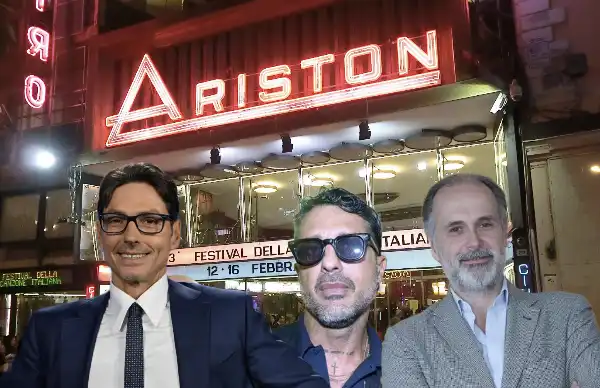
FLASH – TENETEVI FORTE: ORA INIZIA UNA VERA GUERRA TRA MEDIASET E RAI! – NON SOLO GLI UFFICI LEGALI…
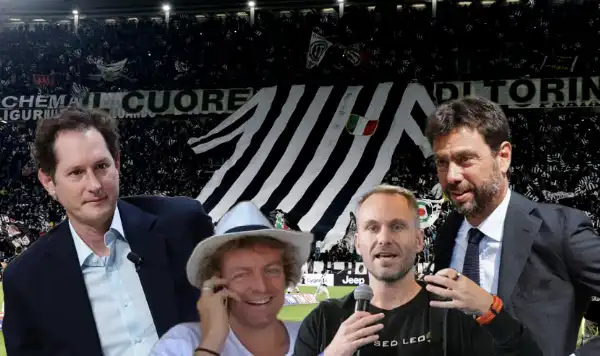
FLASH – VOCI DA TORINO: JOHN ELKANN POTREBBE PRENDERE IN CONSIDERAZIONE L’IDEA DI VENDERE LA…
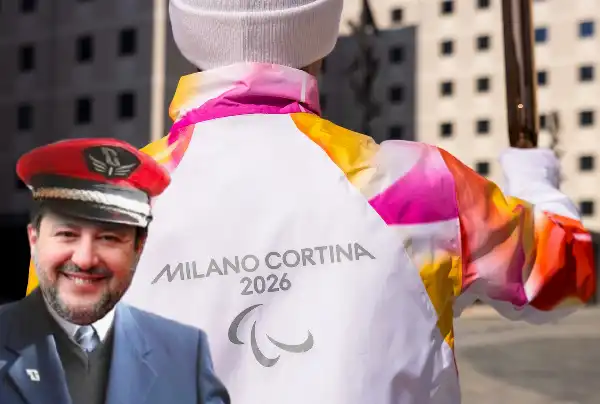
A PROPOSITO DI… SALVINI – IL CAPOSTAZIONE DELLA LEGA È ARRIVATO PUNTUALE NEL DIRE LA SUA SUI…
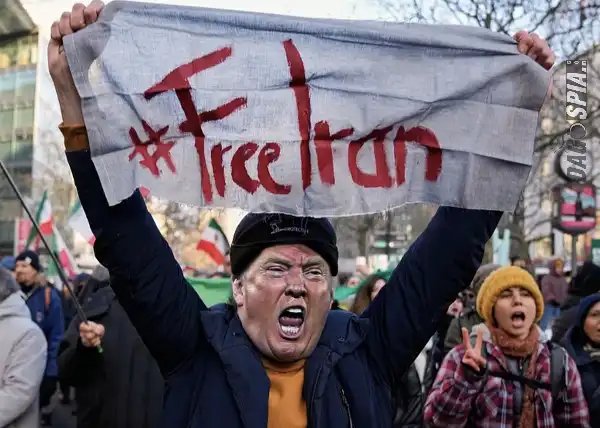
DAGOREPORT – CHE CE FAMO CON KHAMENEI? TRUMP MINACCIA TEHERAN MA L’INIZIATIVA MILITARE SI…

COME MAI LA BELLISSIMA GIO SCOTTI, MODELLA E INFLUENCER ITALIANA DI 19 ANNI, È DIVENTATA SUO…